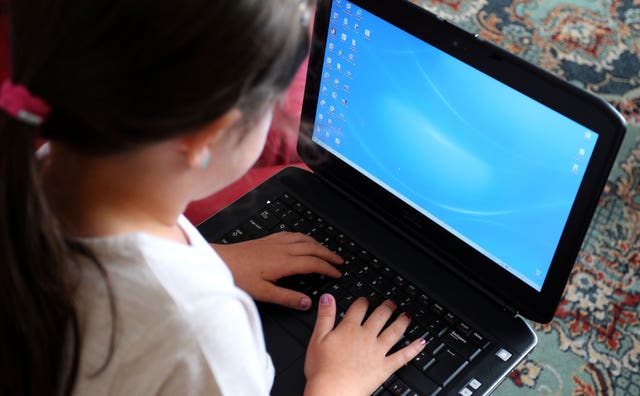
Children as young as seven and eight have stumbled across pornography online, according to a survey by the British Board of Film Classification (BBFC).
More than half of children barely in their teens said that they had stumbled across pornography, with the majority saying it was unintentional.
Fifty one per cent of those aged 11 to 13 reported that they had seen pornography at some point, increasing to 66% among 14-15 year-olds.
Children who took part in the research said they felt “grossed out” and “confused” when they saw the content, particularly those under the age of 10.
Girls also shared their concerns about aggressive depictions of sex, which could be normalised by young boys watching pornography, who then attempt to copy it in real-life sexual encounters.
“Pornography is currently one click away for children of all ages in the UK, and this research supports the growing body of evidence that it is affecting the way young people understand healthy relationships, sex, body image and consent,” said David Austin, chief executive of the BBFC.
“The research also shows that when young children -in some cases as young as seven or eight years old – first see pornography online, it is most commonly not on purpose.”
The BBFC was chosen to be the regulator for delayed age verification measures online, which will force commercial pornography websites to carry out robust age verification checks on users or face having payment services withdrawn or being blocked for UK internet users.
People would have to prove their age in a number of ways, including using traditional forms of ID such as a credit card or passport, or by buying an over-the-counter card from shops where verification would take place face to face.
The tighter controls were due to come into force on July 15, but were pushed back after the Government failed to notify the European Commission about certain aspects of the plan.
According to the survey, more than eight in ten parents agreed that there should be age-verification controls in place for online pornography, with just under half of children saying that the plan was a good idea – though 11-13 year-olds were more in favour than older teenagers.

“It’s very encouraging to see that there is so much public support for age verification,” Mr Austin continued.
“We know that age-verification is not a ‘silver bullet’, nor should it be seen in isolation, but alongside other measures, such as education.
“However, age-verification significantly reduces the risk of young children stumbling across online pornography by accident as they do today.
“The research findings today have shown that parents and importantly, young people and children, want and need there to be stronger controls in place.”
The report also highlighted a difference between what parents thought their child had seen and what they had actually seen.
Three quarters of parents did not believe their child has seen pornography online, but 53% of children said they had.


Comments: Our rules
We want our comments to be a lively and valuable part of our community - a place where readers can debate and engage with the most important local issues. The ability to comment on our stories is a privilege, not a right, however, and that privilege may be withdrawn if it is abused or misused.
Please report any comments that break our rules.
Read the rules here